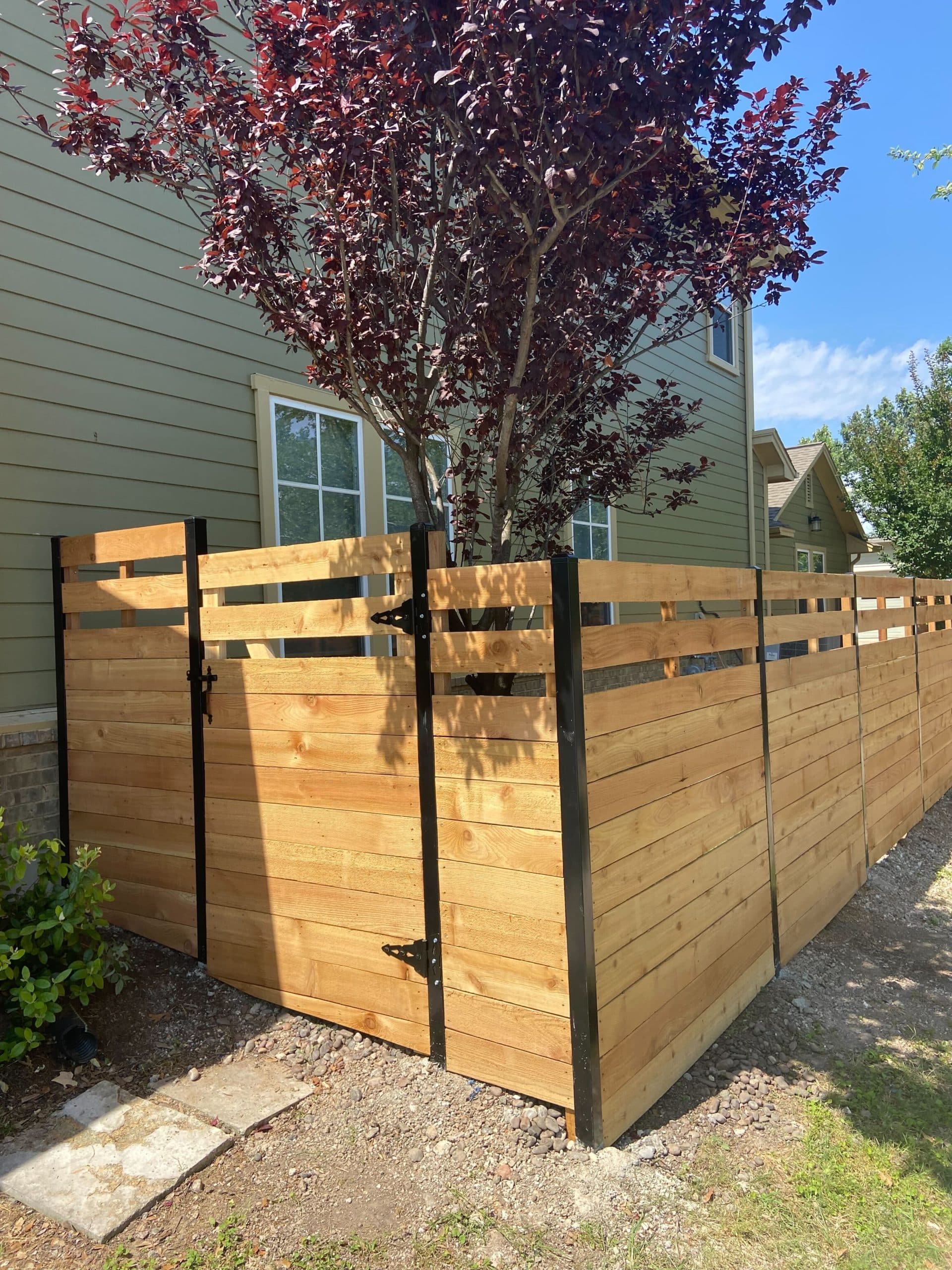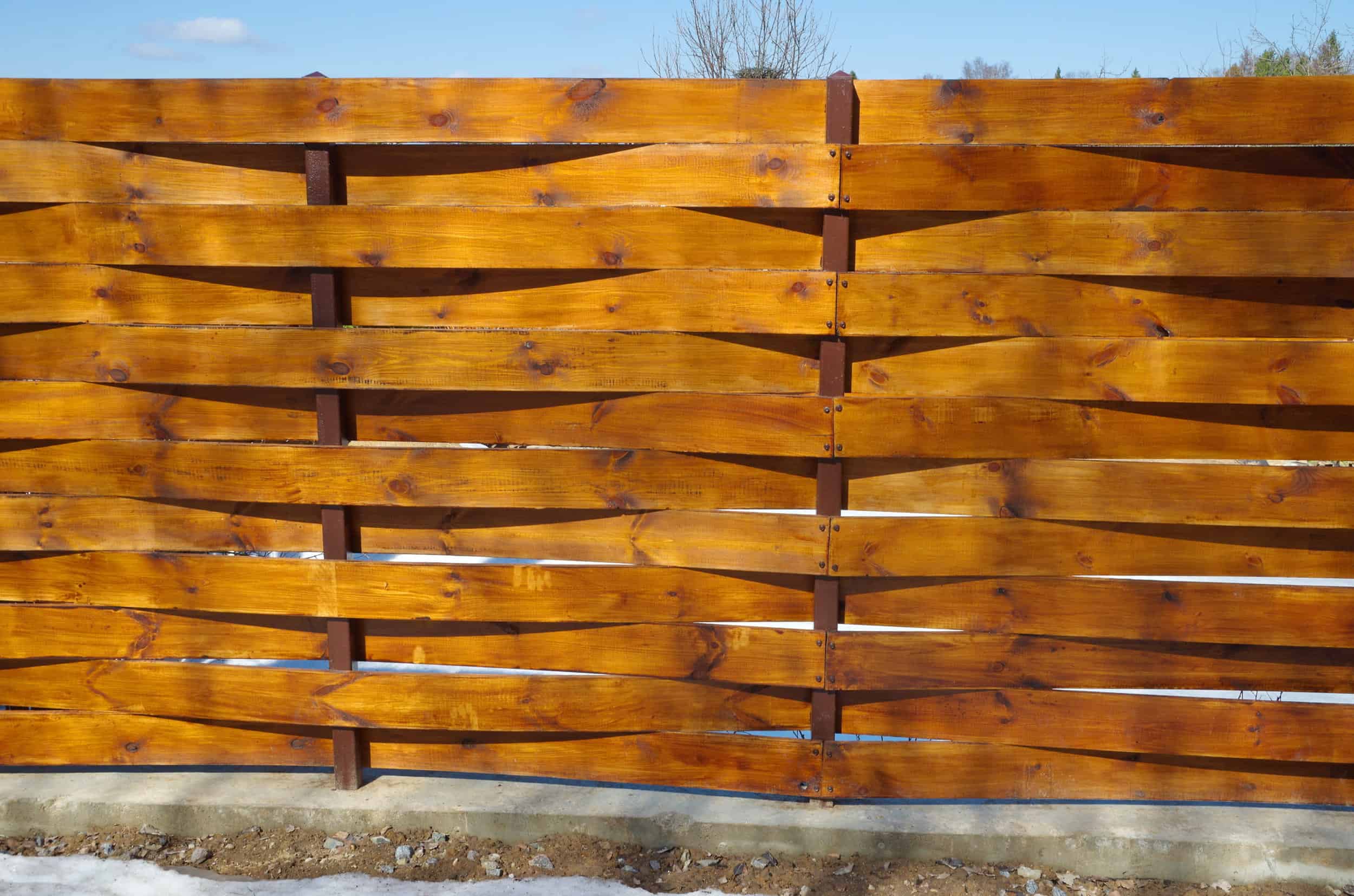All Categories
Featured
When selecting a fence for your property, it's crucial to think about elements like cost, resilience, maintenance, and aesthetic charm. 3 of the most preferred products for household and business fencings are plastic, wood, and light weight aluminum.
Timber Secure Fencing. Pros:
![]()
All-natural Visual: Timber fencings are known for their classic, natural appearance. They can conveniently blend into most landscapes and improve the appeal of your home or business. Whether you're intending for a rustic appearance or an extra polished coating, timber can be customized with paint, discolor, or sealant. Customization: Wood is just one of one of the most functional materials, enabling a wide range of styles, such as picket fencings, privacy fences, and ranch-style units. It's simple to change the style to fit the specific needs of your home. Inexpensive: Normally, wood fencings come with a lower preliminary expense contrasted to plastic or light weight aluminum, making them a cost-effective choice for those on a budget plan. Disadvantages:
Maintenance Requirements: Wood fences need routine maintenance to preserve their beauty and performance. This includes discoloration or paint to protect versus rot, termites, and weather damage. Without proper care, wood can deteriorate in time. Much Shorter Life Expectancy: Compared to vinyl or aluminum, timber fencings often tend to have a much shorter life-span, particularly in locations with severe weather condition. Severe problems, such as heavy rainfall, humidity, or snow, can trigger timber to deteriorate faster. Prone to Damages: Timber fencings are at risk to damage from insects, consisting of termites, along with natural wear from weather. They may likewise warp or fracture otherwise appropriately maintained. Vinyl Fence. Pros:
Low Maintenance: One of the major advantages of vinyl fences is that they need minimal maintenance. Unlike wood, plastic doesn't need to be painted, secured, or discolored. It's immune to fading, discoloration, and fracturing, which saves time and money on upkeep. Resilience: Vinyl is recognized for its ability to endure extreme weather without wearing away. It's unsusceptible bugs like termites, and its resistance to moisture and UV rays guarantees it stays looking helpful for years. Lasting: A vinyl fence can last approximately thirty years or even more, making it a great long-term financial investment. Many manufacturers use guarantees, additionally enhancing its value. Selection of Styles: Plastic fences are offered in different colors and styles, including those that resemble timber. You can select from personal privacy, picket, or attractive designs, providing versatility to match your home or business. Disadvantages:
![]()
Greater Upfront Price: Plastic fencings tend to have a higher first price than wood. While the lasting financial savings on upkeep are substantial, the upfront investment might be a deterrent for some property owners. Restricted Modification: Vinyl fences been available in conventional styles, and while shades and designs are diverse, you may not have as much versatility for customization compared to wood. Cracking in Cold Climates: While vinyl is sturdy, in exceptionally cold environments, it can come to be brittle and split upon influence, which might be problematic in areas with rough winters months. Aluminum Fencing. Pros:
Low Maintenance: Aluminum fencings are recognized for their low-maintenance needs. Unlike wood, aluminum does not corrosion or rust, and it does not need to be repainted or sealed. This makes it a great choice for those who desire an easy option. Longevity and Toughness: Aluminum is a robust material that stands well to extreme climate problems. It's an excellent choice for coastal areas where saltwater corrosion is a concern, as it's resistant to rust. Visual Appeal: Aluminum fences supply a tidy, sophisticated appearance, often made use of for decorative objectives. They're readily available in various designs, including decorative styles, and can include a high-end feeling to your residential or commercial property. Safety and security: Aluminum fences are long lasting and offer wonderful safety and security, particularly when installed with entrances or locks. Their durable building and construction gives a trusted obstacle against unwanted access. Cons:
![]()
Greater Initial Price: Aluminum fencings have a tendency to be extra pricey than wood, especially if you select attractive designs. The in advance price may be excessive for some. Much Less Privacy: Aluminum fences usually have wider voids between the slats, which means they give much less privacy than timber or plastic fencings. If privacy is a top priority, aluminum might not be the most effective choice. Denting Issues: While light weight aluminum is rust-resistant, it is at risk to nicking or bending if struck with pressure. A vehicle mishap or hefty effect can create enduring damages to the fencing. Which Fencing Material is Right for You? Selecting the right fencing depends upon a number of variables, including your budget, style preferences, upkeep capacity, and the environment in which you live. Timber might be the right option if you desire an all-natural appearance and are prepared for routine upkeep. Vinyl is a fantastic selection if low-maintenance and durability are your top priorities. For those that favor a sleek, modern-day appearance with minimal treatment, aluminum provides a lasting, protected option.
Ultimately, each secure fencing product has its advantages and disadvantages, so it is very important to review what matters most for your specific demands. Consider the climate, the degree of privacy you require, and just how much upkeep you're eager to dedicate to, and you'll locate the excellent fencing for your property.
Timber Secure Fencing. Pros:

All-natural Visual: Timber fencings are known for their classic, natural appearance. They can conveniently blend into most landscapes and improve the appeal of your home or business. Whether you're intending for a rustic appearance or an extra polished coating, timber can be customized with paint, discolor, or sealant. Customization: Wood is just one of one of the most functional materials, enabling a wide range of styles, such as picket fencings, privacy fences, and ranch-style units. It's simple to change the style to fit the specific needs of your home. Inexpensive: Normally, wood fencings come with a lower preliminary expense contrasted to plastic or light weight aluminum, making them a cost-effective choice for those on a budget plan. Disadvantages:
Maintenance Requirements: Wood fences need routine maintenance to preserve their beauty and performance. This includes discoloration or paint to protect versus rot, termites, and weather damage. Without proper care, wood can deteriorate in time. Much Shorter Life Expectancy: Compared to vinyl or aluminum, timber fencings often tend to have a much shorter life-span, particularly in locations with severe weather condition. Severe problems, such as heavy rainfall, humidity, or snow, can trigger timber to deteriorate faster. Prone to Damages: Timber fencings are at risk to damage from insects, consisting of termites, along with natural wear from weather. They may likewise warp or fracture otherwise appropriately maintained. Vinyl Fence. Pros:
Low Maintenance: One of the major advantages of vinyl fences is that they need minimal maintenance. Unlike wood, plastic doesn't need to be painted, secured, or discolored. It's immune to fading, discoloration, and fracturing, which saves time and money on upkeep. Resilience: Vinyl is recognized for its ability to endure extreme weather without wearing away. It's unsusceptible bugs like termites, and its resistance to moisture and UV rays guarantees it stays looking helpful for years. Lasting: A vinyl fence can last approximately thirty years or even more, making it a great long-term financial investment. Many manufacturers use guarantees, additionally enhancing its value. Selection of Styles: Plastic fences are offered in different colors and styles, including those that resemble timber. You can select from personal privacy, picket, or attractive designs, providing versatility to match your home or business. Disadvantages:

Greater Upfront Price: Plastic fencings tend to have a higher first price than wood. While the lasting financial savings on upkeep are substantial, the upfront investment might be a deterrent for some property owners. Restricted Modification: Vinyl fences been available in conventional styles, and while shades and designs are diverse, you may not have as much versatility for customization compared to wood. Cracking in Cold Climates: While vinyl is sturdy, in exceptionally cold environments, it can come to be brittle and split upon influence, which might be problematic in areas with rough winters months. Aluminum Fencing. Pros:
Low Maintenance: Aluminum fencings are recognized for their low-maintenance needs. Unlike wood, aluminum does not corrosion or rust, and it does not need to be repainted or sealed. This makes it a great choice for those who desire an easy option. Longevity and Toughness: Aluminum is a robust material that stands well to extreme climate problems. It's an excellent choice for coastal areas where saltwater corrosion is a concern, as it's resistant to rust. Visual Appeal: Aluminum fences supply a tidy, sophisticated appearance, often made use of for decorative objectives. They're readily available in various designs, including decorative styles, and can include a high-end feeling to your residential or commercial property. Safety and security: Aluminum fences are long lasting and offer wonderful safety and security, particularly when installed with entrances or locks. Their durable building and construction gives a trusted obstacle against unwanted access. Cons:

Greater Initial Price: Aluminum fencings have a tendency to be extra pricey than wood, especially if you select attractive designs. The in advance price may be excessive for some. Much Less Privacy: Aluminum fences usually have wider voids between the slats, which means they give much less privacy than timber or plastic fencings. If privacy is a top priority, aluminum might not be the most effective choice. Denting Issues: While light weight aluminum is rust-resistant, it is at risk to nicking or bending if struck with pressure. A vehicle mishap or hefty effect can create enduring damages to the fencing. Which Fencing Material is Right for You? Selecting the right fencing depends upon a number of variables, including your budget, style preferences, upkeep capacity, and the environment in which you live. Timber might be the right option if you desire an all-natural appearance and are prepared for routine upkeep. Vinyl is a fantastic selection if low-maintenance and durability are your top priorities. For those that favor a sleek, modern-day appearance with minimal treatment, aluminum provides a lasting, protected option.
Ultimately, each secure fencing product has its advantages and disadvantages, so it is very important to review what matters most for your specific demands. Consider the climate, the degree of privacy you require, and just how much upkeep you're eager to dedicate to, and you'll locate the excellent fencing for your property.
Latest Posts
Find Top Car Repair Care offered by Montclare Auto Repair – Drive with Confidence
Published May 24, 25
1 min read
Uncover Montclare Auto Repair’s Premier Auto Repairs and Why Drivers Trust Them
Published May 21, 25
1 min read
Discover the Greatest Auto Repair Deals in Montclare, Chicago
Published May 20, 25
1 min read
More
Latest Posts
Find Top Car Repair Care offered by Montclare Auto Repair – Drive with Confidence
Published May 24, 25
1 min read
Uncover Montclare Auto Repair’s Premier Auto Repairs and Why Drivers Trust Them
Published May 21, 25
1 min read
Discover the Greatest Auto Repair Deals in Montclare, Chicago
Published May 20, 25
1 min read